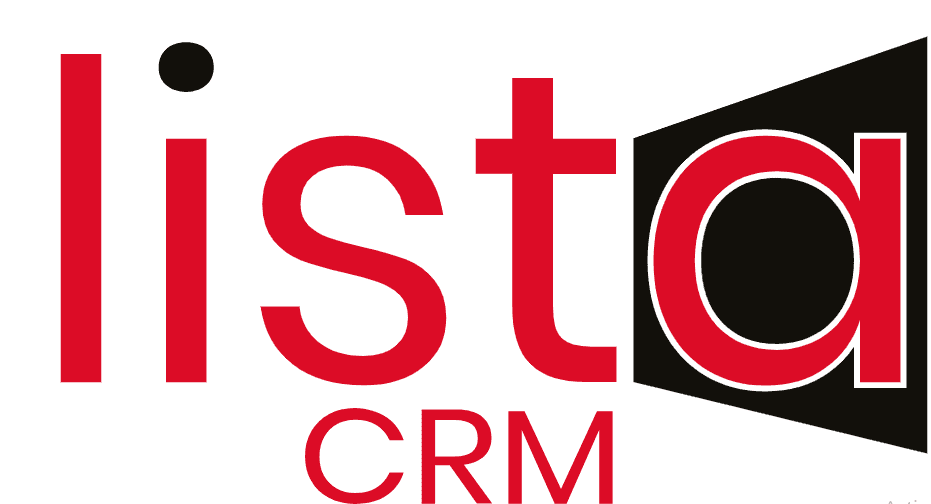For decades, the term real estate development has been synonymous with affluence. Luxury skyscrapers, expansive commercial hubs, and multimillion-dollar residential projects have created a perception that this field belongs solely to the ultra-wealthy. But this perception is rapidly changing. With shifts in technology, financing methods, and government policies, real estate development is no longer an exclusive domain—it’s accessible to individuals from diverse financial and professional backgrounds.
This comprehensive guide will explore the evolving landscape of real estate development, strategies for entering the industry, and the tools that make it achievable for individuals with modest resources. Whether you’re an aspiring developer or a curious observer, this article will provide actionable insights into this exciting and ever-changing field.
The Evolution of Real Estate Development
From Elite Industry to Open Market
Historically, real estate development was seen as a capital-intensive endeavor requiring significant upfront investment. Large corporations and high-net-worth individuals dominated the space, using their wealth to purchase land, fund construction, and manage expansive projects. For an average person, entering this world seemed out of reach, as the barriers to entry—financial, legal, and technical—were too daunting.
Its reliance on networks and connections further cemented the industry’s exclusivity. Developers with established banking, government, and construction relationships had an inherent advantage, leaving little room for outsiders.
However, the industry has undergone significant transformation in the past two decades. Technological advances, alternative funding models, and increased access to education have democratized real estate development. Today, individuals from diverse economic and professional backgrounds can participate and thrive.
Why Real Estate Development Is More Accessible Than Ever
Technological Advancements
The internet has leveled the playing field for aspiring real estate developers. Platforms offering property data, market analytics, and even virtual tours have made identifying and assessing investment opportunities easier. Tools like Zillow, LoopNet, and CoStar provide detailed insights into property values, neighborhood trends, and potential returns.
Additionally, construction technologies such as 3D printing and modular building have reduced development costs. These innovations enable smaller players to execute projects with efficiency and cost-effectiveness.
Alternative Financing Options
Crowdfunding and peer-to-peer lending platforms have redefined how real estate projects are funded. These platforms allow developers to pool resources from multiple investors, enabling them to execute projects without relying solely on their capital.
Government-backed loans, grants, and subsidies for affordable housing and urban redevelopment have also allowed small-scale developers to contribute meaningfully to the industry.
Educational Resources
A wealth of free and affordable educational resources now exists for aspiring developers. Online courses, YouTube tutorials, and industry blogs offer valuable insights into market analysis, property management, and financing strategies. In addition, professional certifications such as those offered by the Urban Land Institute (ULI) or the National Association of Realtors (NAR) can enhance credibility and knowledge.
Getting Started in Real Estate Development
Breaking into the world of real estate development doesn’t require millions of dollars. With strategic planning, resourcefulness, and dedication, you can start small and gradually scale your efforts.
Start with Small-Scale Projects
One of the most practical ways to enter the industry is by undertaking small residential projects. This could involve purchasing and renovating single-family homes or developing duplexes and selling them for profit. These projects typically require lower initial investment and are less complex than commercial developments.
The Benefits of Starting Small:
- Manageable Risk: Smaller projects are less financially risky, allowing beginners to learn without significant losses.
- Faster Returns: Residential properties often have shorter development cycles, meaning you can see returns more quickly.
- Learning Opportunity: Small projects provide hands-on experience with budgeting, construction, and legal requirements.
Consider Real Estate Crowdfunding
Crowdfunding platforms are revolutionizing real estate investing. By pooling funds with other investors, you can participate in high-value projects with minimal upfront investment.
How It Works:
- Choose a Platform: Websites like Fundrise, RealtyMogul, and CrowdStreet cater to different investor types.
- Explore Projects: Browse various developments, from commercial properties to residential complexes.
- Invest According to Your Budget: Some platforms accept investments as low as $100, making it an accessible entry point.
Crowdfunding also diversifies investors’ portfolios by spreading their capital across multiple projects.
Partner with Like-Minded Investors
Collaboration is a powerful way to enter the real estate development industry. You can pool resources, share expertise, and reduce individual financial burdens by forming partnerships.
How to Build Partnerships:
- Network Strategically: Attend industry events and seminars to meet potential collaborators.
- Identify Complementary Skills: Partner with individuals with valuable expertise, such as construction knowledge or financial acumen.
- Create Clear Agreements: Define roles, responsibilities, and profit-sharing terms to avoid conflicts.
Participate in Joint Ventures
Experienced developers often seek joint venture (JV) partners for their projects. While they may bring the capital, you can contribute in other ways, such as market research, project management, or tenant acquisition. These partnerships provide a way to gain experience and earn equity without significant financial investment.
Invest in Real Estate Investment Trusts (REITs)
REITs allow individuals to invest in real estate without owning or managing properties. Purchasing shares in a REIT exposes you to a diverse portfolio of income-generating properties.
Advantages of REITs:
- Low Entry Point: Shares can be purchased for as little as $10.
- Diversification: REITs include a mix of property types, reducing risk.
- Liquidity: Unlike traditional real estate investments, REIT shares can be easily bought and sold.
REITs are ideal for those seeking passive income or an introduction to the real estate sector.
Overcoming Common Challenges
Real estate development, like any industry, has its challenges. However, with preparation and persistence, these obstacles can be mitigated.
Access to Capital
Securing financing is one of the biggest hurdles for new developers. To address this, consider:
- Alternative Financing: Explore crowdfunding, partnerships, or government grants.
- Creative Solutions: Offer services or expertise in exchange for equity.
- Building Credibility: Start small and establish a track record of successful projects to attract investors.
Market Knowledge
Understanding market trends is crucial for success. Without proper knowledge, you risk investing in unprofitable projects. Invest time in:
- Research: Study market reports and real estate publications.
- Networking: Learn from experienced developers and industry professionals.
- Education: Take courses on market analysis and property valuation.
Success Stories to Inspire You
Barbara Corcoran
Barbara Corcoran, a real estate mogul, and Shark Tank investor, started with a $1,000 loan. Her determination and innovative marketing strategies transformed her initial investment into a multimillion-dollar business.
Brandon Turner
Brandon Turner, co-host of the BiggerPockets Podcast, began his journey with small-scale rental properties. He became a leading figure in the real estate investment community by reinvesting profits and scaling gradually.
Key Lessons:
- Start small, but think big.
- Focus on continuous learning and improvement.
- Use each project as a stepping stone for larger opportunities.
The Role of Technology in Democratizing Real Estate Development
Property Marketplaces and Analytics
Digital platforms like Redfin, Zillow, and Mashvisor provide invaluable tools for analyzing market trends, property values, and potential returns. This information enables investors to make informed decisions without needing insider connections.
Construction Innovations

Technologies like 3D printing, prefabricated materials, and green construction methods have reduced building costs and timelines. These advancements allow smaller developers to compete effectively in the market.
Virtual Reality (VR) and Augmented Reality (AR)
Virtual tours and AR apps help developers showcase properties to potential buyers or tenants, reducing the need for costly in-person visits.
The Future of Real Estate Development
Real estate development is evolving to meet the demands of a changing world. Urbanization, the rise of remote work, and the need for sustainable housing are reshaping the industry. These trends create opportunities for new developers to make a significant impact.
Urban Redevelopment
Governments worldwide are incentivizing the revitalization of underdeveloped urban areas. These initiatives present lucrative opportunities for small-scale developers willing to invest in affordable housing or mixed-use properties.
Sustainable Development
Eco-friendly construction and renewable energy integrations are becoming industry standards. Developers who embrace sustainability contribute to the environment and attract environmentally conscious buyers and tenants.
Conclusion
The belief that real estate development is only for the rich is a myth. Anyone can participate in this dynamic industry with the right approach, tools, and mindset. Whether you start by flipping houses, investing in crowdfunding platforms, or partnering with seasoned developers, there are numerous paths to success.
Real estate development isn’t just about wealth but vision, creativity, and resilience. Opportunities exist for individuals from all walks of life to step in, create value, and build legacies.
So why wait? Begin your journey today, and you might become the next real estate development success story.
Frequently Asked Questions (FAQs)
Do I need a lot of money to start real estate development?
Not necessarily. While real estate development can be capital-intensive, there are ways to start with minimal funds. You can explore crowdfunding, partnerships, or small-scale projects like renovating and flipping homes. Creative financing options such as seller financing, hard money loans, or government grants can help you get started.
How can I gain experience if I don’t have a background in real estate?
Start by educating yourself through online courses, books, and industry blogs. To gain hands-on experience, consider working with an experienced developer as an apprentice or assistant. Participating in joint ventures or real estate crowdfunding projects can provide practical insights while reducing risk.
What are the biggest risks in real estate development?
The most significant risks include market fluctuations, unforeseen construction costs, zoning or legal issues, and difficulty securing financing. Mitigating these risks involves thorough research, maintaining a contingency budget, and consulting with professionals such as real estate agents, contractors, and attorneys.
How long does it take to see real estate development project returns?
The timeline depends on the type and scale of the project. Small renovations or house flips might yield returns within 6-12 months, while larger developments, such as multi-family buildings or commercial properties, can take several years. Planning and adhering to schedules can help streamline the process.
What types of properties are best for beginners in real estate development?
Beginners should consider properties with lower risk and manageable investment requirements. These include single-family homes, duplexes, or small multi-family buildings in up-and-coming neighborhoods. Properties that need minor renovations or are eligible for government incentives can also be great starting points.










